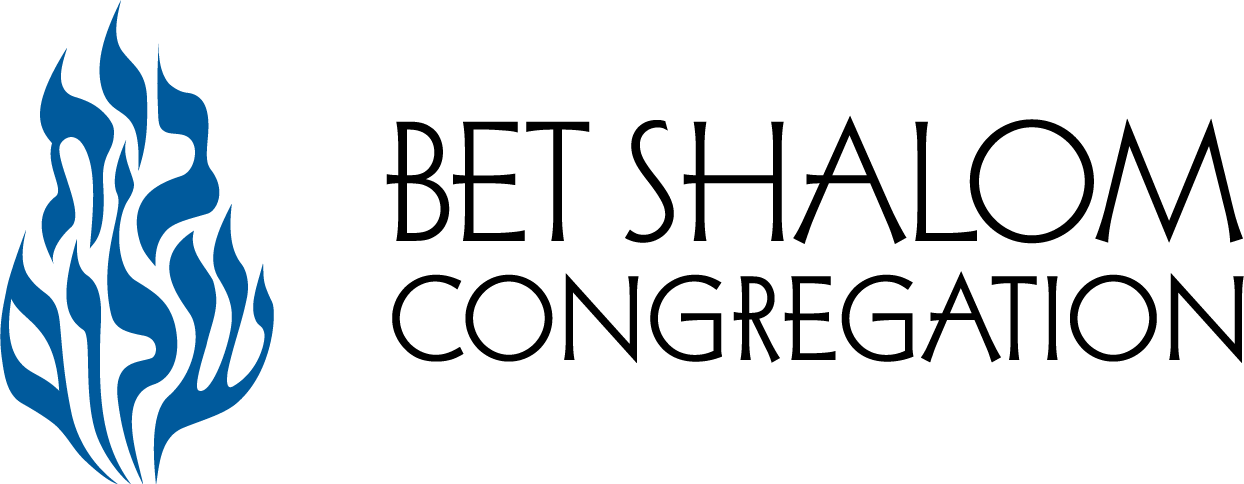Clyde and Kay Cooperman’s Legacy Gift
By Rabbi Norman Cohen and Tom Meyers
When Clyde Cooperman walked into Rabbi Cohen’s study in our Hopkins building nearly 40 years ago, he appeared a bit timid and cautious, like someone who had his expectations dashed on some occasions in the past. As it turned out Clyde was anything but timid. He was a successful businessman who had an amazing career. He was bright and clever, creative and innovative. He had a gift of engaging others in great conversation and bringing a warming effect to the relationship.
To hear Clyde tell it, he was a self-made man who got a couple of breaks and turned them into opportunities. He used his sechel, his common sense, and always remembered who helped him along the way. He found ways to repay those folks.
But he had one area of insecurity—his connection to the Jewish community, which had been strong and deeply nourished by his childhood home and neighborhood. But ever since he had fallen in love with and married the love of his life Kaye Prentice, who was not Jewish, he had felt unwelcome by synagogues and congregations, whose policies and treatment of mixed married couples had been less than cordial and often hostile.
As Clyde sat down, he began sharing his story. “Rabbi, I was told that you and your congregation are open to mixed married couples.” Rabbi Cohen responded: “Yes, that was one of the guiding principles of Bet Shalom from the beginning. If the Jewish community was shrinking and diminishing in strength and size, it was time for Jewish leaders to be creative, to figure out how to engage in outreach and find ways to welcome those who had been disenfranchised, especially when they were seeking a place in communities that were part of their cultural heritage and religious upbringing.”
So when they finally came to visit Bet Shalom, they found a place where they would be welcomed and appreciated. For Clyde it was a highly emotional return to his roots. There was light sparkling in his eyes, and when he turned to Kay they both smiled from ear to ear.
Since Rosh Hashanah was approaching, Rabbi Cohen asked Clyde about their plans for the holidays. “Where are you and Kay going to be?” “We have no place to go, Rabbi.” “Well, you will be worshiping with us. Here are some tickets so that you can join us.”
“Really, rabbi? Kay knows no Hebrew and mine is pretty rusty after all these years.” Rabbi Cohen said, “Our services are a combination of Hebrew and English, and all the Hebrew is transliterated to enable people to participate.” Clyde, the salesman, automatically asked, “Well, how much do they cost?” The rabbi closed the deal: “Clyde, we don’t charge folks who are coming home! These are on the house!” They attended high holiday services and returned again and again and joined our congregation. Clyde was home again.
‘Coming home’ was a phrase that Clyde used often, practically every time he and Rabbi Cohen saw each other. And that was not only at services but in the community when their paths crossed, at lunches where they talked about the past and the present. Clyde felt so at home, he continued to appear not only on the holidays year after year, but on Shabbat as well.
After Kay became ill and could no longer live at home, he found a place where she would be well taken care of and within visiting distance. He went to see her every day, often twice a day. He then enjoyed services at Bet Shalom as a place of refuge and comfort, being welcomed by those who recognized him when he attended. After it was difficult to drive, he asked us to arrange transportation.
One day, Clyde came to see Rabbi Cohen again. “You know rabbi, Kay and I were never blessed with children. We have some nephews and a niece, but no other younger family with whom we are closely connected. Bet Shalom has been like our family, where we feel at home. I am arranging with my investment counselor and lawyer for Bet Shalom to be one of my beneficiaries after Kay and I are gone.”
That was a perfect time for Rabbi Cohen to introduce Clyde to Tom Meyers, our current chair of the Etz Chaim endowment campaign. A lunch was arranged that was the first of many. During these lunches we discussed the endowment and how gifts to it were laying the seeds for the future. We explained that a gift to the endowment was “forever giving,” a tangible way to leave a legacy for his family name and provide ongoing opportunities for other families and Jewish learning.
Clyde wanted his life of earning and investment to continue to benefit others. He saw Bet Shalom as a great place to do that. If people received only a portion of the satisfaction that he and Kay felt in coming here, that would justify his seeing Bet Shalom as a place to preserve that legacy.
In addition, his nephews and niece wanted part of his gift to be used to help those in need to pursue their college educations. Accordingly we have established the Clyde & Kay Cooperman Scholarship Fund that will support educational opportunities for several well-deserving Bet Shalom congregants.
Clyde & Kay Cooperman will be missed, but their legacy will live on forever as their major gift to the Bet Shalom Endowment provides annual operating support to the Bet Shalom budget and allows our clergy, staff, and lay leaders to serve to our congregation for years into the future.



